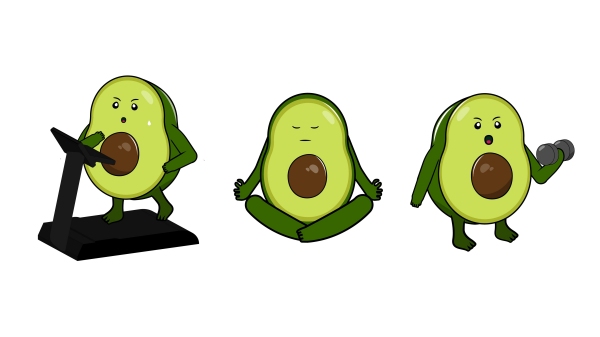
A few people have taken us to task for promoting the idea that people do not have to be strict vegans. Or as we have put it, that people can adopt “weak” veganism. I would like to explain what we mean by “strong” and “weak” veganism.
The core concept that guides us here at JustUs Too is that veganism is not some fringe idea or strange new moral philosophy. Rather, we see it as the name given to the idea that we extend moral consideration to other species. More exactly, we think of veganism as regarding other animals as having the same basic three rights as people – the rights to be free, to in control of one’s own life and not to be treated cruelly.
Why “rights”? Well, it’s because we believe that in a similar fashion to the concept of human rights, rights for other animals is simply a way of describing how we should wish to treat them. Rights represent essential moral principles that we think can be applied not only to people but also other animals.
Human rights recognise the inherent value of each person, regardless of background, where we live, what we look like, what we think or what we believe. They are based on principles of dignity, equality and mutual respect, which are shared across cultures, religions and philosophies. They are about being treated fairly, treating others fairly and having the ability to make genuine choices in our daily lives. Likewise, regarding other animals as having these same basic rights is a way to recognise the inherent value and dignity of other species and aim to treat them fairly by our choices whenever we can (or choose to).
With this in mind, let’s look at the generally accepted definition for veganism. The UK Vegan Society defines veganism as:
“A philosophy and way of living which seeks to exclude—as far as is possible and practicable—all forms of exploitation of, and cruelty to, animals for food, clothing or any other purpose; and by extension, promotes the development and use of animal-free alternatives for the benefit of animals, humans and the environment. In dietary terms it denotes the practice of dispensing with all products derived wholly or partly from animals.”
Most vegan advocates believe in following this definition in a very strict fashion. They simply refuse to buy or use anything derived from another animal as much as they possibly can. Many will not, for example, eat a potato chip cooked in the same oil as a piece of chicken or they will refuse to eat oysters because oysters are an animal. This is a very simple and easy way to interpret and adopt veganism as a direction for living. We call this “strong” veganism and it is available to anyone.
However, the definition for veganism can be seen to rest upon the same basic rights-based foundation that we promote here at JustUs Too. The UK Vegan Society’s definition explicitly states that the aim is to prevent all forms of exploitation and cruelty to animals, which is precisely what the three basic human rights set out to achieve for humans and which – when applied to other animals – achieves what the Vegan Society aims to achieve by veganism.
Now, in many countries, human rights are enforced at law and so we can expect a fairly standard range of behaviours from members of these societies. However, such rights for animals are not generally enforced at law and people are free to make their own choices about whether they respect these rights. In that way, “animal rights” do not necessarily mean that everyone will adopt the same behaviours or make the same choices. For some people, it may be just too hard in their particular circumstances or they may simply not be willing to go that far.
However just because someone cannot or doesn’t want to be a strict vegan doesn’t mean that they have to give up entirely on being fair to other animals whenever they can. Rather they can use the concept of animal rights as a guide to what to do when it comes to their actions, such as buying decisions. For example, while animals on farms may not be truly free or able to exercise bodily autonomy, they may be relatively free to live natural lives and they may be treated well. Buying products from these farms may be considered a fairer act than economically supporting CAFO systems.
We call this “weak” veganism. Anyone at all can adopt the guiding principles of veganism – basic rights for other animals – and so long as they genuinely mean to do what they can to treat other animals fairly then we believe they are acting consistently with the principles of veganism.
To offer an admittedly extreme example, someone may have decided that for their health they will adopt a carnivore diet. Now, on the face of it this is directly inconsistent with veganism, but just the same that doesn’t mean that they cannot want to make fair decisions about what they do. They might still choose to buy products not tested on animals, they may buy only second hand leather and woollen products, they could even buy meat from high welfare grazed animal systems. We would regard such a person as endorsing weak veganism.
To sum up then, strong veganism is when someone follows the UK Vegan Society’s definition to the letter, while weak veganism is when someone uses the underlying moral principles to guide the choices they make. In the end, people are free to make whatever choices they wish but aiming to be fair to other animals is within everyone’s reach.
JustUs Too encourages everyone to want to be fair to other animals.
One thought on “What are “Strong” and “Weak” Veganism?”